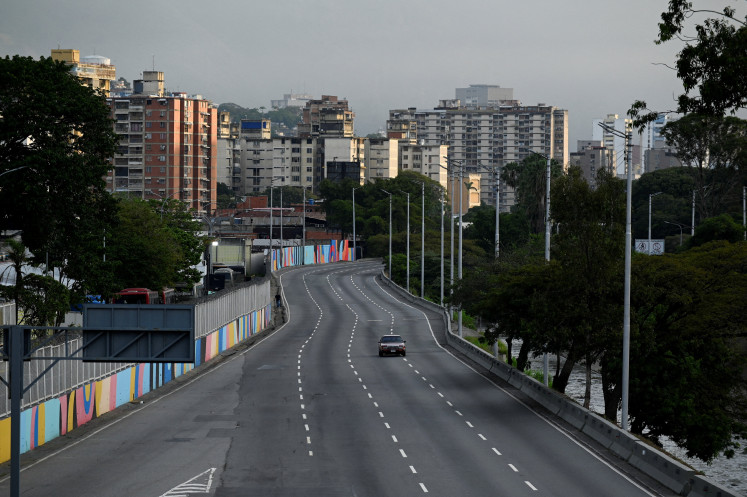Popular Reads
Top Results
Can't find what you're looking for?
View all search resultsPopular Reads
Top Results
Can't find what you're looking for?
View all search resultsPharmaceutical industry still growing, but at slower pace
Despite the worsening global financial crisis, Indonesia’s pharmaceutical industry is still raking in hefty gains this year, but at a slower pace, the Indonesian Pharmaceutical Association (GP Farmasi) said recently
Change text size
Gift Premium Articles
to Anyone
Despite the worsening global financial crisis, Indonesia’s pharmaceutical industry is still raking in hefty gains this year, but at a slower pace, the Indonesian Pharmaceutical Association (GP Farmasi) said recently.
The industry’s growth is estimated to slow to 9 percent this year from the usual level of more than 12 percent annually, said GP Farmasi deputy chairman Syamsul Arifin.
He added the industry’s revenue would top around Rp 30 trillion (US$2.6 billion) this year
from Rp 28 trillion last year and Rp 25 trillion in 2007.
The sluggish growth is being blamed on the soaring costs of drugs, which are fast becoming unaffordable because of an increase in import costs of raw material as the rupiah continues its decline against the US dollar.
“All the manufacturers have to import their raw material, making them vulnerable to the rising exchange rate of the US dollar that raises their production costs. As long as it is still below Rp 12,000 to the dollar, we can still survive,” Syamsul said.
GP Farmasi chairman Anthony Charles Sunarjo forecast production costs would rise by about 10 percent.
“With such uncertainty, we can’t target high profits. But we have to work hard to improve our efficiency so that we can grow well this year. Otherwise, we may suffer a loss,” he said.
According to the association, 95 percent of products from pharmaceutical companies are sold in the domestic market, while only about 5 percent are exported, mostly to Southeast Asian countries and Hong Kong.
“I think that of all about 200 pharmaceutical companies, only the big 40 will make a profit this year, while the others will possibly sustain losses due to the currency slide and rising production costs,” Syamsul said.
Of the 200 companies, about 162 are local, while the other 38 are foreign-based, according to GP Farmasi.
Syamsul said locally owned pharmaceutical manufacturers had a market share of 70 percent, while foreign ones had 30 percent.
Last year, the local firms booked an average growth of 15 percent in profit, while the foreign-based ones booked around 10 percent, according to the association.
Anthony said that as the economic crisis throttled purchasing power, many people would turn from using prescribed medicine to using non-prescribed ones, which were more affordable.
“During the crisis, fewer people will go to doctors and take prescribed medicine. Instead, they will turn to using non-prescribed ones sold at drugstores. It’s always been like that,” he said, adding about 60 percent of medicine was administered as prescribed, while 40 percent was non-prescribed.
However, he added, manufacturers already had some experience in facing hard times.
“The [late-1997 Asian financial] crisis was much worse than this one. But we survived the storm,
so we’re optimistic that this time we can also come out unscathed,” he said.
Anthony urged the government to encourage the development of the upstream pharmaceutical industry to produce raw material, which was expected to be cheaper than imported raw material.
By doing so, he went on, local companies would no longer rely on imports of raw material.
“The government can facilitate such development by reforming its investment regulations in the industry, and then protect it for at least five years, until it is able to compete with imported medicine,” he said.










